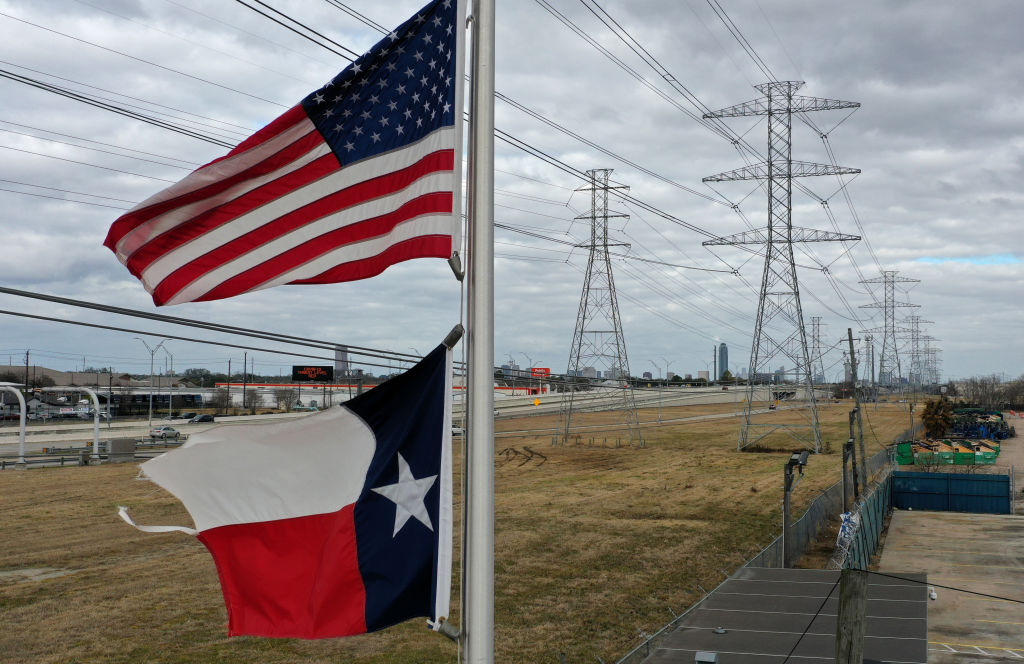WSJ: Texas' energy deregulation has been a terrible deal for Texas consumers


A free daily email with the biggest news stories of the day – and the best features from TheWeek.com
You are now subscribed
Your newsletter sign-up was successful
When Texas deregulated its electricity market two decades ago, proponents promised that consumers would get better service at lower prices. Long before the service half of that equation proved spectacularly wrong during last week's freeze, the 60 percent of Texans required to buy their electricity from retail power companies, not local utilities, were already getting a lousy deal, The Wall Street Journal reports.
"Those deregulated Texas residential consumers paid $28 billion more for their power since 2004 than they would have paid at the rates charged to the customers of the state's traditional utilities," the Journal found, based on its analysis of federal Energy Information Administration data. "From 2004 through 2019, the annual rate for electricity from Texas' traditional utilities was 8 percent lower, on average, than the nationwide average rate, while the rates of retail providers averaged 13 percent higher than the nationwide rate."
The theory behind deregulating the electricity market was that forcing retail power companies to compete for customers would lead to innovation and lower prices. "In other states that allow retail competition for electricity, customers have the option of getting their power from a regulated utility," the Journal notes. Large parts of Texas don't have an incumbent utility to compete against, and the retail industry has been consolidating under two major retailers, Vistra and NRG Energy, which now control at least 75 percent of the retail market.
The Week
Escape your echo chamber. Get the facts behind the news, plus analysis from multiple perspectives.

Sign up for The Week's Free Newsletters
From our morning news briefing to a weekly Good News Newsletter, get the best of The Week delivered directly to your inbox.
From our morning news briefing to a weekly Good News Newsletter, get the best of The Week delivered directly to your inbox.
On the power generation side, Texas deregulation has rewarded companies that can sell cheap power to retailers and utilities — or sometimes really expensive power — but it provides little incentive and no requirements to invest in infrastructure that would have prevented last week's widespread blackouts. Now, "Republican Gov. Greg Abbott wants to force power plants to winterize," The Associated Press reports, and the GOP-led Texas Legislature will start lashing the state's grid operators in hearings Thursday.
"In a lot of respects, we're victims of our own attempt to let free market forces work," state Rep. Drew Darby (R) told AP. "Typically, you know, the Texas Legislature pushes back on overregulation," but "my view on something as basic to human survival and need is we need to have reliable power and water." State Rep. Rafael Anchia (D) agreed that "regulation is a four-letter word in this building at times," but said "four million people without power and 12 million people without drinkable water, right, that gets everybody's attention."
A free daily email with the biggest news stories of the day – and the best features from TheWeek.com
Peter has worked as a news and culture writer and editor at The Week since the site's launch in 2008. He covers politics, world affairs, religion and cultural currents. His journalism career began as a copy editor at a financial newswire and has included editorial positions at The New York Times Magazine, Facts on File, and Oregon State University.
-
 Can the UK take any more rain?
Can the UK take any more rain?Today’s Big Question An Atlantic jet stream is ‘stuck’ over British skies, leading to ‘biblical’ downpours and more than 40 consecutive days of rain in some areas
-
 The UK expands its Hong Kong visa scheme
The UK expands its Hong Kong visa schemeThe Explainer Around 26,000 additional arrivals expected in the UK as government widens eligibility in response to crackdown on rights in former colony
-
 One great cookbook: Joshua McFadden’s ‘Six Seasons of Pasta’
One great cookbook: Joshua McFadden’s ‘Six Seasons of Pasta’the week recommends The pasta you know and love. But ever so much better.
-
 TikTok secures deal to remain in US
TikTok secures deal to remain in USSpeed Read ByteDance will form a US version of the popular video-sharing platform
-
 Unemployment rate ticks up amid fall job losses
Unemployment rate ticks up amid fall job lossesSpeed Read Data released by the Commerce Department indicates ‘one of the weakest American labor markets in years’
-
 US mints final penny after 232-year run
US mints final penny after 232-year runSpeed Read Production of the one-cent coin has ended
-
 Warner Bros. explores sale amid Paramount bids
Warner Bros. explores sale amid Paramount bidsSpeed Read The media giant, home to HBO and DC Studios, has received interest from multiple buying parties
-
 Gold tops $4K per ounce, signaling financial unease
Gold tops $4K per ounce, signaling financial uneaseSpeed Read Investors are worried about President Donald Trump’s trade war
-
 Electronic Arts to go private in record $55B deal
Electronic Arts to go private in record $55B dealspeed read The video game giant is behind ‘The Sims’ and ‘Madden NFL’
-
 New York court tosses Trump's $500M fraud fine
New York court tosses Trump's $500M fraud fineSpeed Read A divided appeals court threw out a hefty penalty against President Trump for fraudulently inflating his wealth
-
 Trump said to seek government stake in Intel
Trump said to seek government stake in IntelSpeed Read The president and Intel CEO Lip-Bu Tan reportedly discussed the proposal at a recent meeting
